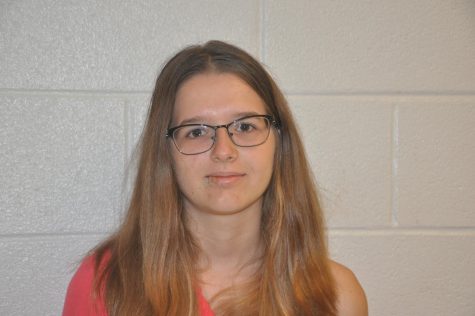FCPS SUB SHORTAGE: UNCERTAIN TIMES AGGRAVATE ISSUE
Photo courtesy of iteach.net
Right now is what they call “unprecedented” times, when all students have been out of school for a month and are trying to get back into learning with the help of technology, which unfortunately hasn’t been working well. As the shift occurred, some problems at Westfield disappeared, giving rise to new struggles. One of those issues is the county-wide substitute shortage, something that has intensified in the last couple of years, and suddenly dissolved as the schools across the state shut down. However, since the role of substitute teachers went extinct in the world of online learning, a lot of people also lost their jobs and maybe the means to help feed their family in these uncertain times.
Many of the substitutes are retired teachers, people who are over fifty and are the most vulnerable to the virus that has been rampaging the world for months. If the school reopens in August, how many of the teachers and substitutes will decide to go back to the job and put themselves at risk again?
Before the school closed, there were several open substitute jobs daily and that’s only in subschool five, which means there must be dozens of open spots around the school.
Fairfax County is the hardest hit county in Virginia by far. If some of the teachers and substitutes will decide not to come back next year, the school and the county in general will need even more new substitutes. And they will need not just anyone, but the younger generations, people who might not be as qualified, to come and help.
But what are some of the reasons why the substitute shortage existed way before COVID-19 took over the county?
Luann Hoyseth, an administrator who recently has been active on twitter supporting students and faculty with kind words and pictures of her bulldogs, explains that the cut in pay that occured two years ago was the spark of the problem.
Kevin Laub, English teacher, suggested that the pay cut made it not worth for some substitutes to come back.
“I think the county has been looking for areas to save money and that was an easy one for them, but it ended up bringing a negative impact on us,” said Laub.
Right now the salary for retired teachers on a short term assignment (less than 11 consecutive days) is $20.50 per hour, and $26 per hour for a long term assignment (11 consecutive days or more). Meanwhile, if the substitute is not a retired FCPS teacher, their rate is $14.50 per hour for a short term assignment and $20.50 per hour for a long term assignment.
However, Hoyseth thinks that the pay is not the only reason for the shortage.
The administrator notes that one of the reasons people choose this job is the flexibility: “People don’t necessarily want to work in the building every day. They want to have some flexibility and they want to make their schedule, so they are not necessarily available to us every day.”
Moreover, Hoyseth adds that since the beginning of the shortage, the substitute’s job became even harder. While normal teachers have a planning period every day, the subs usually don’t have one because they are asked to cover for another class.
“It makes it a really long day and it’s difficult to get a bathroom break, or to take a breather. You are going to all four classes, every day,” explained Hoyseth.
Julie Weston, one of Westfield’s most frequent substitutes, shares that for her the biggest disadvantage is the way some students treat substitutes.
“I try to keep the class on track during the teacher’s absence, but some of the students see it as a free day, and really don’t think they have to do any work. But the vast majority of the students are great!” shared Weston.
The biggest shortage is happening in the special ed department. Kristine Oleksiak, the administrative assistant in subschool four, shared that there are an average of 4 open jobs everyday in the special ed department.
“It’s a very tough job and people are afraid of what they don’t know,” hinted Oleksiak at the stigma surrounding the special-ed department.
Hoyseth elaborated on what she and the administration are doing to help solve the problem.
First, they came up with a checklist for teachers to make sure they gave subs all the information they might need. On it are some basics such as where the classroom is located, what to do during the Bulldog Block, and how to go about the senior privileges.
Second, they have also standardized what the subschools give, creating a packet of basic information everyone needs to know, including the map of the school.
“Because obviously even the kids in the building can’t find their way around,” chuckled Hoyseth.
One of the new struggles that COVID19 will bring into the next year is the likely decrease of retired teachers who are ready to come back and sub. Meanwhile, the retired teachers are the most valuable and the most prepared to take on the role of a substitute.
“When a teacher requests a sub, it’s a lot of work on the teacher to be gone and so they really prefer someone who can actually teach the lesson and not just sit there and monitor kids. That’s why they try to get the retired teachers to come in, who might have the background in that subject and can actually teach the class versus a babysitter,” said Hoyseth.
“Retired teachers have the skills that are going to confidently run the classroom in my absence,” affirmed Laub.
So, what happens to the classes, where there is no teacher and no substitute? In that case, another teacher has to give up their planning period and take the job.
Laub explains that it’s not so much about falling behind on your work, as it is simply irritating: “I suppose I feel like I fall behind maybe because I now have to find another time in the day to do the thing that I was hoping to do during the planning period. Sometimes though, if you go into the classroom and it’s independent work, I can set up my laptop and do the work that I was hoping to do anyway. If I am covering for a class, I just hope that I don’t have to do any heavy-lifting teaching.”
Both Laub and Hoyseth have agreed that technology, specifically FCPSOn program that provides all students with individual laptops, has made the substitute issue easier.
“I can post things on google classroom, I can check things. So, I know as long as the sub is there I can make sure they are doing their work.” described Laub.
So, how should the county and Westfield in particular solve the shortage?
“Pay subs more,” said Laub simply.”We saw the problem started when we cut their pay and we can solve the problem by reinstating the original pay. I know the budget is tight, but teachers are seeing the fallout from that and it hurts morale and it gives us one more thing to worry about that we don’t have to worry about.”
Pay might have been a good solution before COVID 19 hit, but now that the economy is destroyed and the risks are not likely to disappear any time soon






Ms. Nelson • May 7, 2020 at 1:05 pm
Thank you for bringing attention to this issue. It is a concern for many teachers.